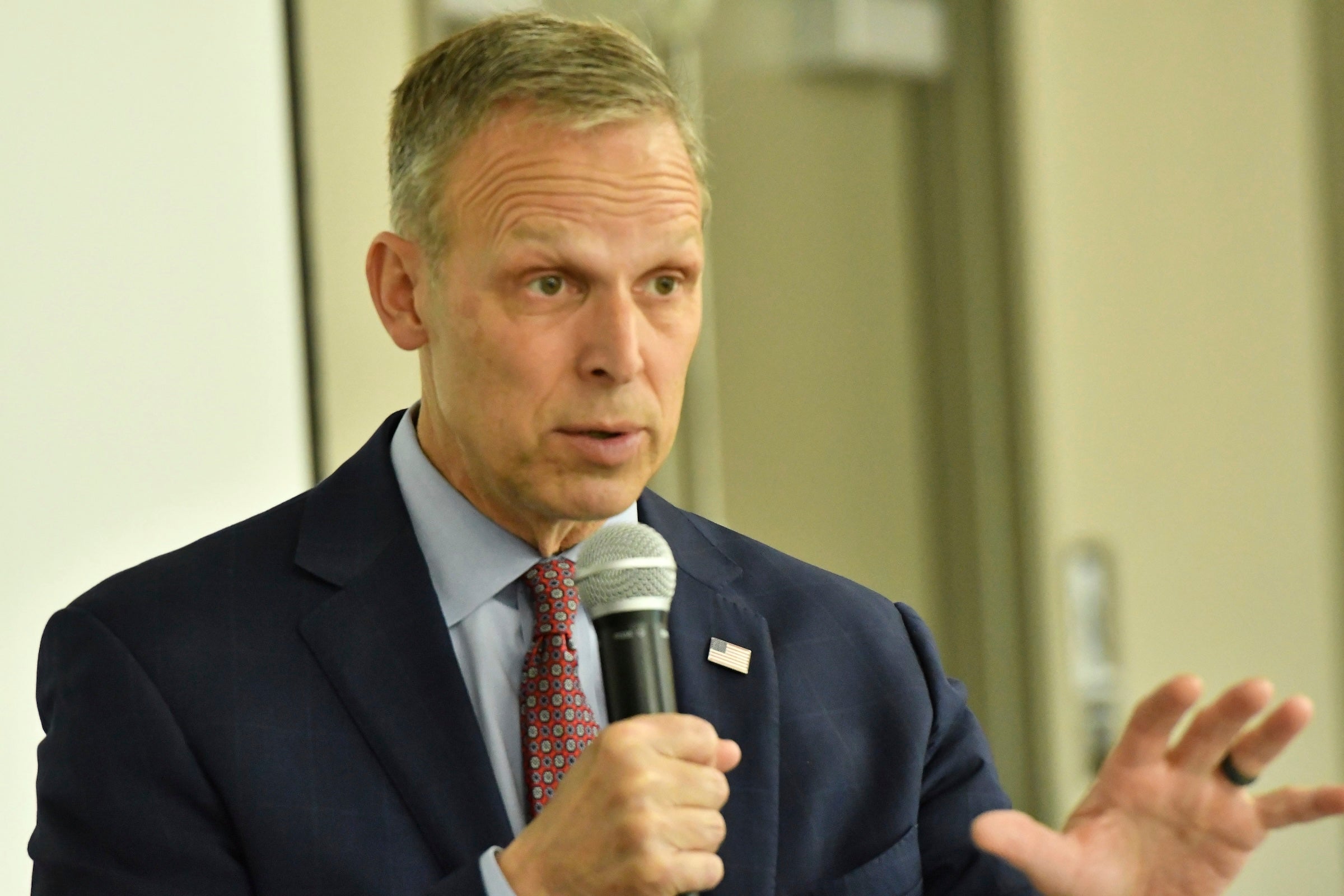Republicans defend their strategy
Veteran GOP strategist Doug Heye argued that interacting with constituents in “planned and controlled ways” is more productive than town halls for members of Congress. “And that’s smart for any politician,” he said.
The National Republican Congressional Committee, the House Republicans’ campaign arm, is not encouraging targeted members to stay out of the public eye, a spokesperson said.
Instead, the NRCC encourages lawmakers to meet with their constituents in public, but to be wary of events that could divert attention from a House member’s message and agenda, according to NRCC spokesman Mike Marinella.
“We tell everyone, go out and meet people. You have to be in front of your constituents,” Marinella said. “Use every avenue you can.”
House Speaker Mike Johnson, R-La., recently suggested that some of the people attending public meetings with members “do this as a profession, they’re professional protesters.” He urged lawmakers to consider convening so-called tele-town hall meetings, dial-in conferences where thousands can listen and lawmakers take questions.
In 2010, under pressure over the health care overhaul that became known as Obamacare, a number of House Democrats skipped public events after facing angry town halls the previous summer. Some held tele-town hall meetings instead.
Then-House Speaker Nancy Pelosi, D-Calif., co-authored an opinion piece referring to some protests as “un-American” and denouncing an “ugly campaign (to) disrupt public meetings and prevent members of Congress and constituents from conducting a civil dialogue.”
Just under a decade later, House Republicans trying to repeal that health law were accused of ducking town halls as well. Then-House Speaker Paul Ryan, R-Wis., said he would stop holding town halls to limit access for protesters from outside his district.
Both the Democrats in 2010 and the Republicans in 2018 would go on to lose their House majorities.
Democrats step in
The Democratic National Committee, backed by organized labor and other progressive groups in some states, has launched dozens of “People’s Town Halls” and “Good Trouble” events in districts where Republicans will not hold public events.
Democrats are betting their strategy will give them an advantage in the 2026 election, when control of Congress will be decided for the last two years of Trump’s final term. Historically, the party that holds the White House loses seats in these midterms. And as of now, Republicans would lose the House majority if they lose a net of just two seats.
Republican National Committee Chairman Michael Whatley put it in stark terms during an appearance at the Iowa Faith and Freedom spring fundraiser this month.
“This midterm election cycle is going to determine whether we have a four-year presidency or a two-year presidency,” Whatley told an audience of 700 Iowa Republican activists and social conservative leaders. Referring to the 2018 Democratic House takeover, he warned of House investigations and a stalled Trump agenda that “knocked the administration off its feet.”















